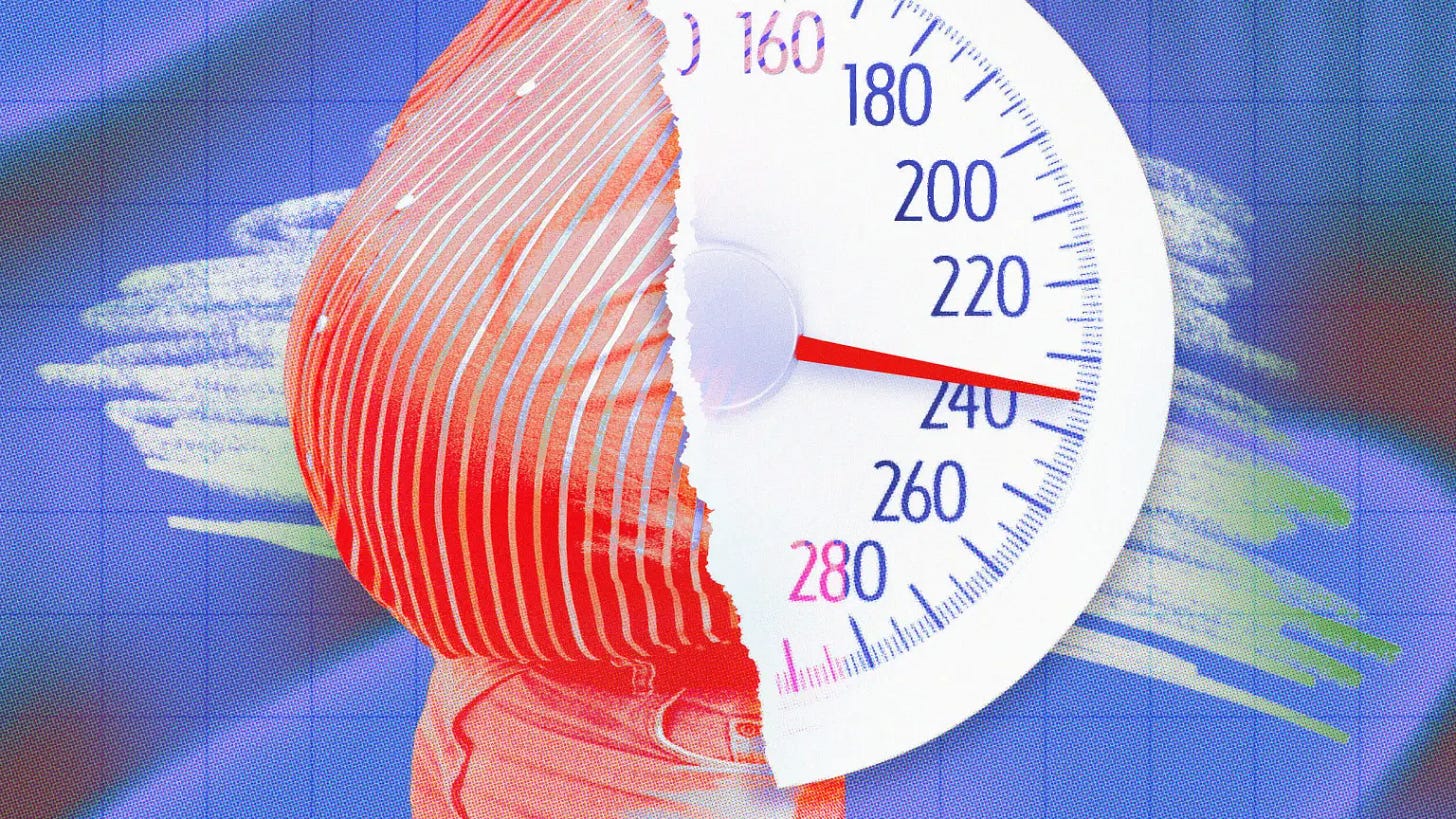🌎 This AI skeptic was right all along…
How a pet chicken demonstrates the dangers of AI errors.
Hey Freethinkers,
If your friend could effortlessly write a decent essay on virtually any topic, you’d consider them pretty smart. But if that same friend confidently suggested squirting glue on your pizza? You’d call them insane. Modern AI tools suffer a similar paradox: impressive feats of apparent “intelligence” paired with bizarre outputs that expose a fundamental lack of real-world understanding.
This week, we speak to Gary Marcus, a cognitive scientist and prominent AI skeptic, about the shortcomings of current AI tools — and why it’s not too late to change course. Call Marcus a skeptic. Call him a doubter. But do not, as one AI did, claim he owns a pet chicken named Henrietta.
Also on deck: We investigate the potential benefits of AI running the electricity grid, while Future Explored looks at new CDC data and asks whether the U.S. has hit “peak obesity.”
Onwards,
Stephen
FREETHINK FEATURES
AI skeptic Gary Marcus on AI’s moral and technical shortcomings
Gary Marcus does not own a chicken, but it’s pretty easy to get an AI chatbot to say that he does. What does AI’s tendency to make stuff up say about how intelligent it really is? And why does arch-skeptic Marcus say he’s not anti-AI, despite all his criticisms of it? We talk all about it and much more in the link below.
THE DIGITAL FRONTIER
Should we turn the electricity grid over to AI?
Turning over control of the grid to AI may sound like a needless risk, regardless of whether you think AI is superintelligent (it’ll go Terminator and kill us all!) or dumber than rocks (add glue to your pizza to keep the cheese from sliding off!). But putting aside the extremes, there’s a good argument for why some new AI tools won’t just be helpful for keeping the lights on — they may even be essential for running the grid of tomorrow.
IN THE KNOW
Two light-years without a crash
by @MaxCRoser on X
Air travel, despite recent high-profile accidents, is still the safest way to travel — and US airlines, in particular, have an exemplary record. Max Roser crunches the numbers and finds that passengers on US flights flew trillions of miles — the equivalent of two light-years, or almost halfway to Alpha Centauri — since the last jet crash.
FUTURE EXPLORED
Has the US reached “peak obesity”?
Obesity in the US has been going up relentlessly for half a century. And while there have been a couple years where it looked like it might be leveling off, it has always gone right back to rising. But this time really might be different. Kristin Houser explains why.
WORTH SHARING
Watch: How your brain works in an emergency, in 9 minutes
The psychology of surviving a crisis with Amanda Ripley.
We all imagine how we'll react in a crisis, but when disaster strikes, our real responses are often surprising and unpredictable, says bestselling author Amanda Ripley. In her book The Unthinkable, Ripley explores the concept of a "disaster personality" and the varied ways people respond to life-threatening situations, from hysterical screaming to laughter or complete shutdown. Through research on survivors of disasters like plane crashes and earthquakes, she identifies common emotional patterns and offers insights into how we can better understand and prepare for our own reactions in emergencies.
Stephen Johnson is the managing editor at Big Think and a writer at Freethink.












